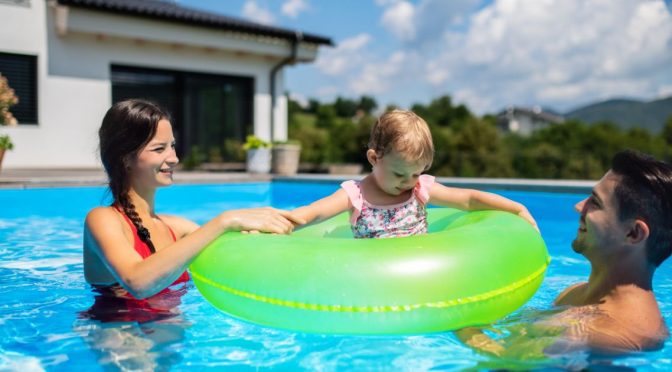Beat the Broward Heat: Top Pool Inspection Checks for Safe Summer Swims
Pool inspections in Broward keep families safe while they enjoy swimming in the hot summer sun. A pool is a great way to cool off, but it can also hide dangers if not checked properly. Pool inspections help catch problems early so everyone can swim without worry.
We’ll review the top pool inspection checks every Broward homeowner should know to keep summer swims safe and enjoyable.
Why Pool Inspections Matter in Broward
Pool inspections are important because they ensure swimmers’ safety and protect your investment. With the heat and heavy storms in South Florida, pools need extra care.
Reasons pool inspections matter:
- Prevent accidents and injuries
- Keep water clean and healthy
- Find and fix hidden damage
- Make sure safety equipment works
- Follow Broward safety rules
A pool that appears fine on the surface may have serious problems beneath the water or around its edges.
Check 1: Pool Fences and Gates
A strong pool fence is the first line of defense to keep kids and pets safe. Pool fences are required by law in Broward, FL.
What inspectors look for:
- Fence is at least 4 feet tall
- No gaps that kids can crawl through
- Gates close and lock on their own
- No objects nearby to climb over
A working fence and gate help stop accidents before they happen.
Check 2: Pool Drains and Drain Covers
Drains can be dangerous if they’re broken or missing covers. Strong suction can trap swimmers underwater.
What to check:
- Drain covers are secure and not cracked
- Drains meet safety standards
- No sharp edges or broken parts
A safe drain keeps water moving without putting swimmers at risk.
Check 3: Pool Water Quality
Dirty or unbalanced water can make swimmers sick. A pool inspection checks if the water is safe to swim in.
What inspectors check:
- Chlorine and pH levels are correct
- Water is clear, not cloudy or green
- The pump and filter are working
- No strong chemical smell
Clean water stops skin rashes, red eyes, and infections.
Check 4: Pool Deck and Walkways
Slippery or cracked pool decks can cause falls. Inspections make sure the area around the pool is safe.
What to look for:
- No loose tiles or broken concrete
- The deck surface is slip-resistant
- Handrails and ladders are strong
- No clutter blocking paths
A safe deck helps swimmers move around the pool without slipping or tripping.
Check 5: Safety Equipment
Every pool needs working safety equipment close by.
Items to check:
- Life rings and reaching poles
- First aid kit nearby
- Emergency phone access
- Pool rules sign visible
Having the right safety tools can save a life in an emergency.
Check 6: Electrical and Lighting Systems
Water and electricity can be a dangerous mix. Pool inspections include a full check of electrical systems.
What inspectors look at:
- Pool lights are working and sealed
- No exposed wires
- Ground fault circuit interrupters (GFCIs) installed
- Electrical panels in good shape
Safe electrical systems help prevent shocks and fires.
What to Do if Your Pool Fails an Inspection
If an inspector finds problems, fix them right away. Common fixes include:
- Repairing or replacing fences and gates
- Cleaning or balancing pool water
- Installing new drain covers
- Fixing cracks or slippery spots on the deck
- Replacing broken safety gear
Keep all repair records. They help prove you’re keeping your pool safe and can be useful for insurance claims.
Conclusion
Regular pool inspections help you catch hidden problems before they turn into accidents or costly repairs. By checking fences, gates, drains, water quality, decks, safety gear, and electrical systems, you make sure your pool is ready for fun all summer long.
A safe pool means fewer worries and more time to relax and make happy memories. Whether you’re a homeowner, landlord, or property manager, taking this step demonstrates your concern for the individuals using your pool. Make pool safety a top priority and enjoy every swim with peace of mind.






